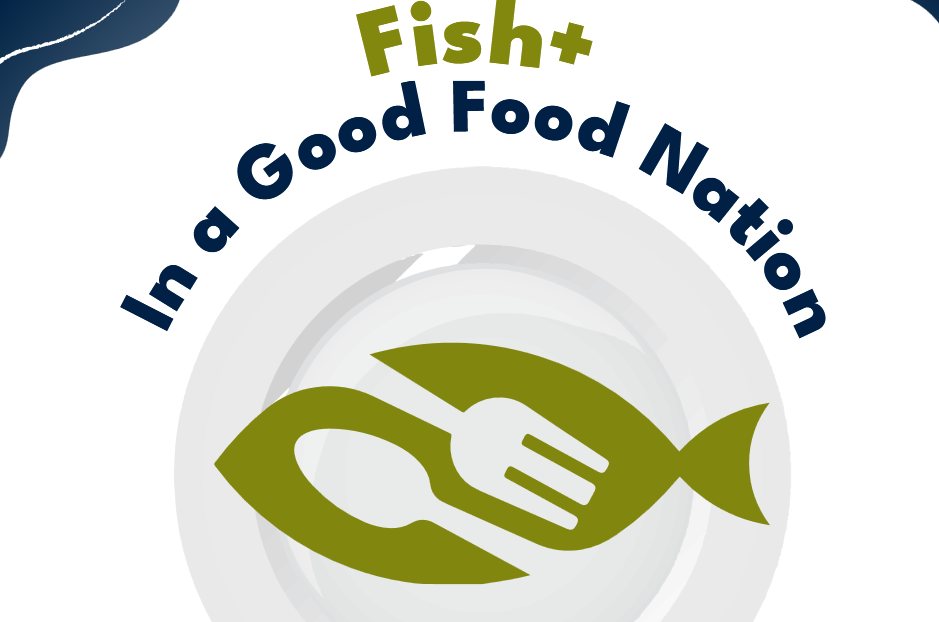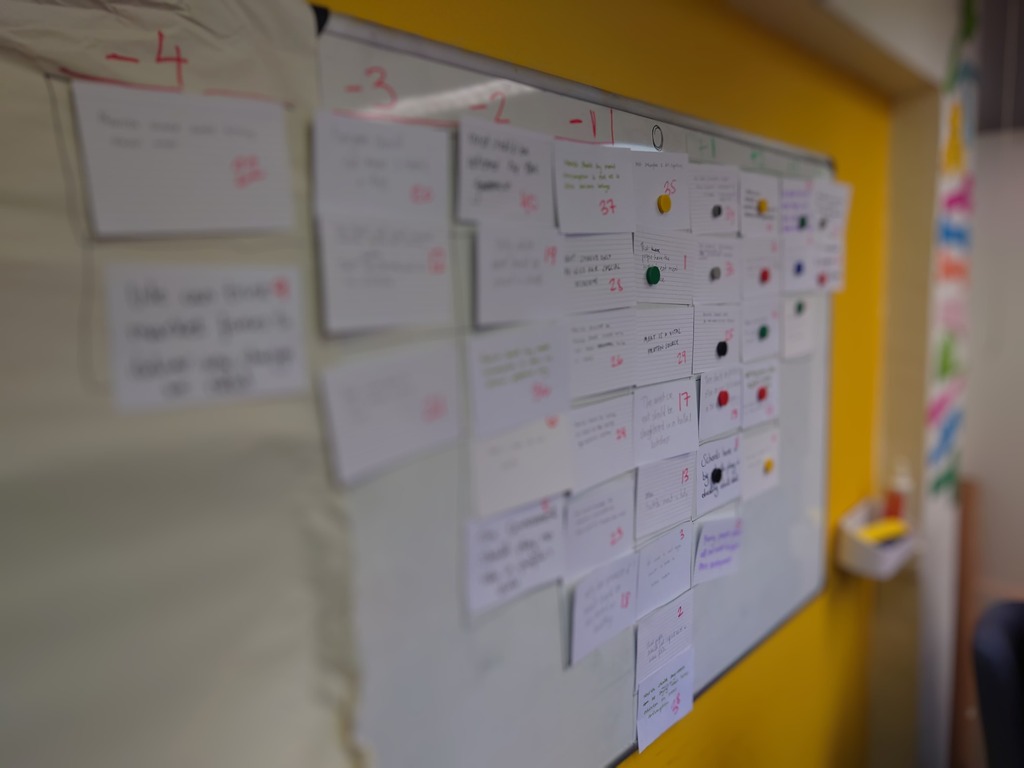
In this ongoing multi-stakeholder project, I am working with community participants to co-produce insights into their engagement with, and changing attitudes regarding, the inclusion of aquatic foods and stakeholders in food system transformations in Scotland. The lead organisations are keen to understand how participants feel meaningfully involved in the project, especially where this applies to under-served communities in the food system. I’ve designed an approach using interviews, participant observation, and Q Methodology.
Nourish Scotland asked me to design a workshop introducing a methodology (‘Q Methodology’) that would help them engage with stakeholders in meaningful ways, and in line with their intersectional justice and system change ethos. The workshop was reviewed as “fascinating … warm and encouraging”, and the organisation has gone on to include the methodology in a successful funding bid.


The double-edged sword of visibility in queer and ecological liberation
Measuring is political – that is, how and what we measure is embedded in social power relations. A key organising principle of mainstream environmental governance has been to “measure what matters”. This has meant putting prices on nature so that damages to it are “visible” to market forces. I show how the end result of this is that we can only value what we measure: so the politics of who and what is measured, what we simplify, erase, and miss, makes it a highly political processes that is not recognised as such. I draw on case studies to show the flaws of this approach. I compare it to a very similar process in what has been termed “rainbow capitalism”, wherein LGBTQIA+ lives are valued to the extent they can perform in a market and service economic growth. This project shows how historically othered, marginalised and dominated subjects – both nature and queerness – are made to perform (“visibility”) through the acts of apparently enlightened measurement. I show the importance of learning across experiences of resisting these kinds of knowledge regimes.
Generative artificial intelligence and learning / knowledge ecosystems in policy development
Generative AI is being widely – if unevenly – applied across policy influencing and development actors. As part of a four-person team, we’re looking at what is driving its uneven deployment, different approaches to regulation, and what the potential implications are in policy influencing organisations across the political spectrum. My main interest is in the potential for knowledge injustices and knowledge erasures as organisations pivot to AI measures at the expense of other ways of developing, holding, sharing, and learning from knowledge and information.
